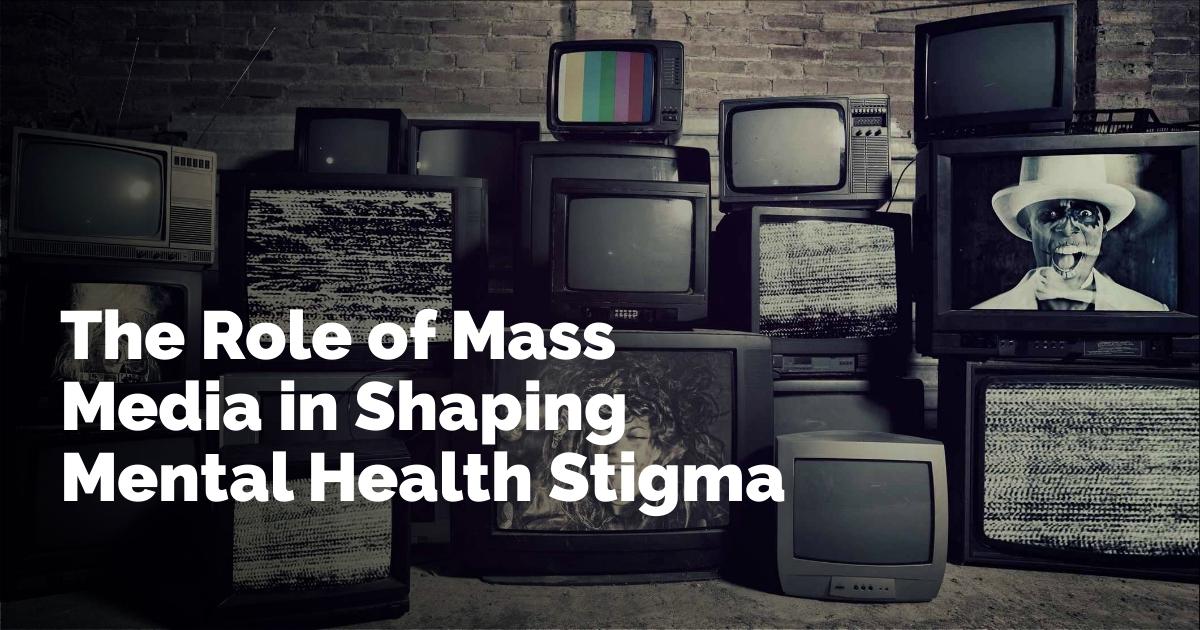How Mass Media Contributes to Mental Health Stigma
Understanding Mental Health in the Media
The role of mass media in shaping public perceptions of mental health cannot be understated. Whether through news reports, films, TV shows, or social media, the portrayal of mental illness has a profound impact on societal attitudes. Unfortunately, these portrayals often perpetuate harmful stereotypes and stigmatize individuals with mental health conditions. This blog delves into the common media-driven misconceptions about mental health and their damaging effects on society and individuals.
Mental health stigma, particularly as perpetuated by the media, comes in various forms, including the stigmatization and trivialization of mental illness. These misrepresentations contribute to the social stigma surrounding mental health, influencing public perceptions and behavioral attitudes, and often leading to discrimination and social rejection.
What Is Stigmatization?
Stigmatization involves forming negative beliefs, attitudes, and behaviors towards individuals based on certain distinguishing characteristics. Within the context of mental health, stigma arises from the presence of mental health symptoms or a diagnosis. This phenomenon extends beyond mental health conditions to include other aspects of identity such as disabilities, gender, race, and culture.
This stigmatization of mental health has significant negative consequences. When people are labeled as "other," they face barriers to social acceptance and inclusion. Mental health stigma is linked to poorer mental health outcomes due to discouraging people from seeking or adhering to treatment, ultimately affecting their recovery and quality of life.
Stigmatization of Mental Illness by the Media
Media portrayals of mental illness often present stigmatized and skewed perceptions. For example, conditions like schizophrenia are frequently depicted as disruptive, necessitating isolation of those diagnosed. Media representations tend to focus on individuals with mental illness rather than addressing mental health as a societal issue. This results in audiences attributing blame to individuals for their conditions, ignoring biological, environmental, and societal components.
Prevalent media narratives can oversimplify mental health conditions, such as portraying individuals with depression as uniformly suicidal or associating schizophrenia solely with hallucinations. These narratives are misleading and overlook the reality that many individuals with mental illness manage their conditions privately, without widespread disclosure.
Trivialization of Mental Illness by the Media
Another damaging media portrayal is the trivialization of mental illness, where conditions are oversimplified or depicted as inconsequential. Eating disorders, for example, are often downplayed despite their severe consequences. Media focus on thinness can normalize and perpetuate disordered eating behaviors.
Additionally, media often misrepresents the complexity of mental health disorders. For instance, people with obsessive-compulsive disorder (OCD) are frequently portrayed as obsessed with cleanliness, ignoring the underlying obsessive thoughts driving compulsions.
Depictions of Schizophrenia in Film
Film portrayals of schizophrenia often exacerbate stigma by depicting characters with mental illness as violent or psychotic. This not only disseminates misinformation about schizophrenia but also fuels negative stereotypes. Research analyzing films between 1990 and 2010 found characters with schizophrenia frequently exhibited violent behavior, with media rarely addressing the true causes of the illness or the potential for treatment.
Such portrayals often emphasize "positive" symptoms like hallucinations and delusions while neglecting the more common, less sensational symptoms, such as decreased motivation and social withdrawal. Media narratives on the causes of schizophrenia are often misleading, suggesting it results from traumatic events or can be cured by love, which misrepresents its complexity.
How Mental Health in the Media Is Damaging
The negative portrayal of mental health in the media is damaging for various reasons:
Spreading Myths About Mental Illness: Films and shows frequently emphasize atypical symptoms or those that are not characteristic of most mental health conditions.
Linking Mental Illness to Violence: Media portrayals reinforce the myth that individuals with mental illness, particularly schizophrenia, are prone to violence and erratic behavior.
Exaggerating Suicide Risk: Media exaggerates the suicide risk associated with mental illnesses, such as schizophrenia, contrary to more conservative estimates in clinical research.
Misrepresenting Who Is Affected: Media often fails to accurately portray the demographics of those affected by mental illnesses, leading to misconceptions about prevalence across different groups.
Spreading Myths About Causes: Media frequently attributes mental illness to incorrect causes, such as abuse or tragic events, propagating myths about mental health.
Impact of the Media on Mental Health
The influence of media-driven mental health stigmatization extends widely:
Promoting Self-Stigma: Individuals internalize the shame attached to mental health conditions due to negative media representations.
Spreading Incorrect Information: The media often disseminates incorrect information about mental illness symptoms, diagnoses, and treatments, contributing to misinformation.
Creating Barriers to Treatment: Stigmatized perceptions in media can deter individuals from seeking help or adhering to treatment plans.
Encouraging Self-Diagnosis: The spread of viral social media content often leads people to self-diagnose inaccurately, based on unverified sources rather than professional medical advice.
What Can Be Done?
Addressing the media's role in perpetuating mental health stigma requires a multifaceted approach:
Enhancing Media Literacy: Mental health education for media professionals can improve understanding and accurate portrayal of mental health conditions.
Engaging Experts: Including mental health professionals in media production can ensure that portrayals are informed and accurate.
Promoting Balanced Narratives: Media should aim to depict mental illnesses as societal issues, rather than focusing solely on individual accountability.
Focusing on Accuracy: The use of precise, expert-endorsed language when discussing mental health is crucial to improving public understanding.
Implementing these strategies can foster more accurate and empathetic media portrayals, reducing stigma and promoting better mental health advocacy and understanding.
Takeaways
It's essential to recognize that diagnosing mental health conditions should be left to trained professionals. Media and public discourse play a vital role in shaping perceptions and should strive for responsible, well-informed contributions to the conversation on mental health.
출처 : Original Source

